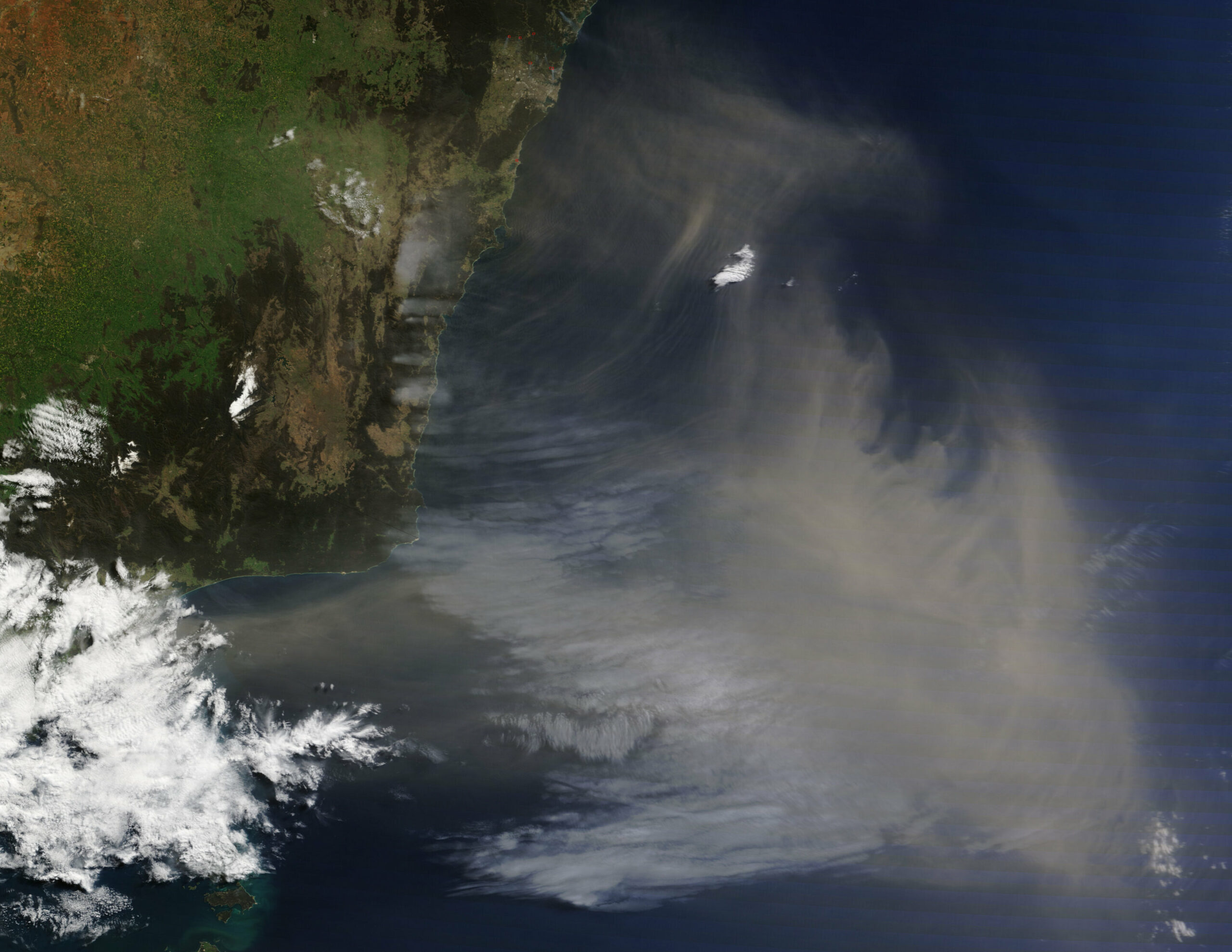

Researchers from Oregon State University have led a study that reveals the impact of dust on the world’s oceans. Phytoplankton, which are found in the upper part of the ocean and are the foundation of the marine food web, rely on dust from land-based sources for key nutrients. However, the extent that this dust, from sources like soil lifted by wind, has on the global ecosystem has been difficult to estimate. The study found that the nutrients deposited onto the ocean by dust are creating a response in the surface ocean biology, with the dust supporting 4.5% of the global annual export production of carbon. This pathway of carbon from the atmosphere to the ocean floor is known as the biological pump and is a key factor in controlling atmospheric carbon dioxide, which is a primary driver of global warming and climate change.
In the study, researchers used satellite data to examine the changes in ocean color following dust inputs. Ocean color imagery is collected across the global ocean every day and reports changes in the abundance of phytoplankton and their overall health. The study found that the response of phytoplankton to dust deposition varies based on location. In low-latitude ocean regions, dust input is seen as an improvement in phytoplankton health, but not in abundance. In contrast, phytoplankton in higher-latitude waters show both improved health and increased abundance when dust is provided. The research team is continuing this research and will be bringing in improved modeling tools and preparing for more advanced satellite data from NASA’s upcoming Plankton, Aerosol, Cloud, Ocean Ecosystem (PACE) satellite mission, some of which will be collected by the University of Maryland, Baltimore County-designed and -built HARP2 instrument.
Rogue waves have long been a subject of fascination and terror in maritime lore. These…
As the world grapples with public health challenges, especially those posed by infectious diseases, the…
The Sombrero Galaxy, also known as Messier 104, embodies a breathtaking blend of spirals and…
In recent advances in quantum electronics, a groundbreaking discovery leveraging the concept of kink states…
In the intricate tapestry of nature, ice often exists in a delicate balance with liquid…
In an astonishing event that captured global attention, a rogue object from beyond our Solar…
This website uses cookies.